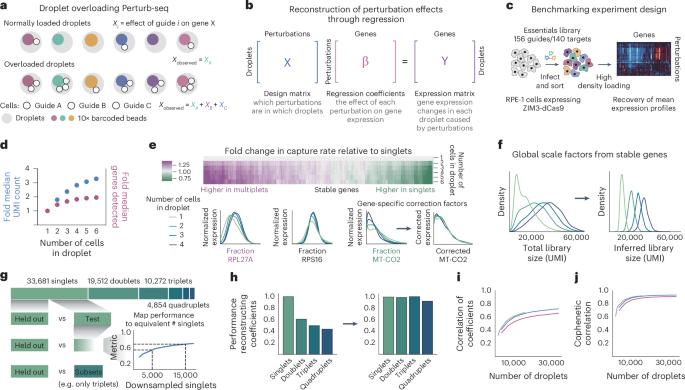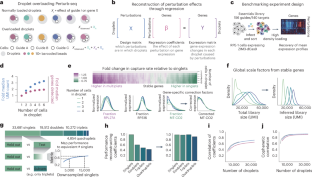Comprehensive transcription factor perturbations recapitulate fibroblast transcriptional states
IF 29
1区 生物学
Q1 GENETICS & HEREDITY
引用次数: 0
Abstract
Cell atlas projects have revealed that common cell types often comprise distinct, recurrent transcriptional states, but the function and regulation of these states remain poorly understood. Here, we show that systematic activation of transcription factors can recreate such states in vitro, providing tractable models for mechanistic and functional studies. Using a scalable CRISPR activation (CRISPRa) Perturb-seq platform, we activated 1,836 transcription factors in two cell types. CRISPRa induced gene expression within physiological ranges, with chromatin features predicting responsiveness. Comparisons with atlas datasets showed that transcription factor perturbations recapitulated key fibroblast states and identified their regulators, including KLF2 and KLF4 for a universal state present in many tissues, and PLAGL1 for a disease-associated inflammatory state. Inducing the universal state suppressed the inflammatory state, suggesting therapeutic potential. These findings position CRISPRa as a nuanced tool for perturbing differentiated cells and establish a general strategy for studying clinically relevant transcriptional states ex vivo. CRISPR activation of 1,836 human transcription factors recapitulates fibroblast transcriptional states observed in vivo and identifies regulators that can revert inflammatory states.


综合转录因子扰动再现成纤维细胞的转录状态
细胞图谱项目揭示了常见的细胞类型通常包含不同的、反复的转录状态,但这些状态的功能和调控仍然知之甚少。在这里,我们展示了转录因子的系统激活可以在体外重建这种状态,为机制和功能研究提供了可处理的模型。使用可扩展的CRISPR激活(CRISPRa) Perturb-seq平台,我们激活了两种细胞类型中的1,836个转录因子。CRISPRa在生理范围内诱导基因表达,染色质特征预测反应性。与图谱数据集的比较显示,转录因子扰动再现了关键的成纤维细胞状态,并确定了它们的调节因子,包括KLF2和KLF4,这是许多组织中普遍存在的状态,PLAGL1是疾病相关的炎症状态。诱导普遍状态抑制炎症状态,提示治疗潜力。这些发现将CRISPRa定位为干扰分化细胞的微妙工具,并建立了研究体外临床相关转录状态的一般策略。
本文章由计算机程序翻译,如有差异,请以英文原文为准。
求助全文
约1分钟内获得全文
求助全文
来源期刊

Nature genetics
生物-遗传学
CiteScore
43.00
自引率
2.60%
发文量
241
审稿时长
3 months
期刊介绍:
Nature Genetics publishes the very highest quality research in genetics. It encompasses genetic and functional genomic studies on human and plant traits and on other model organisms. Current emphasis is on the genetic basis for common and complex diseases and on the functional mechanism, architecture and evolution of gene networks, studied by experimental perturbation.
Integrative genetic topics comprise, but are not limited to:
-Genes in the pathology of human disease
-Molecular analysis of simple and complex genetic traits
-Cancer genetics
-Agricultural genomics
-Developmental genetics
-Regulatory variation in gene expression
-Strategies and technologies for extracting function from genomic data
-Pharmacological genomics
-Genome evolution
 求助内容:
求助内容: 应助结果提醒方式:
应助结果提醒方式:


